Moving Forward Through Farming
Agriculture is empowering Black youth at Sankofa Farms
By Pamela A. Keene | Photos by Randy Berger PhotographySelf-described farmer, teacher and dreamer Kamal Bell lives his mission of connecting young African American boys to the land every day. But he’s about more than that. He’s an agent of change.
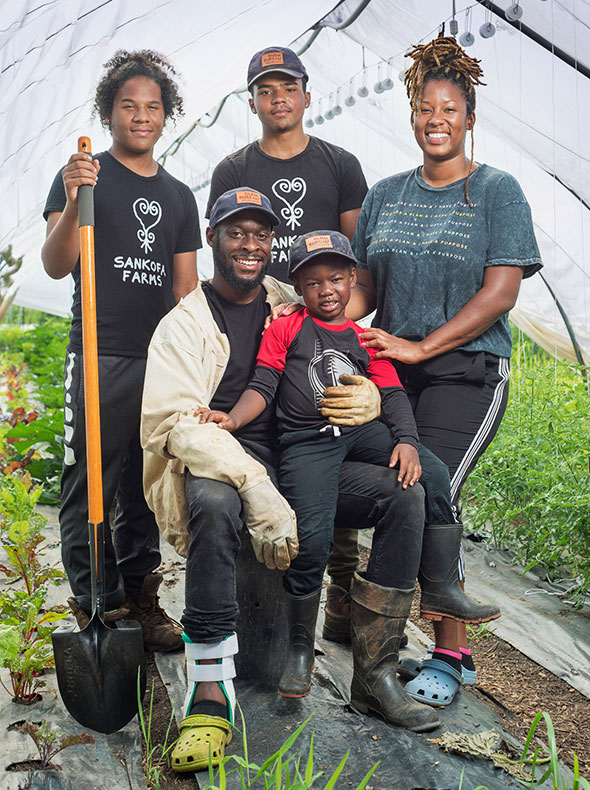
Farmer and educator Kamal Bell (seated) is using agriculture to engage and empower his community’s youth. Pictured with him are (left to right) students Jamil and Mikal Ali; his son, Akemm; and his wife, Amber.
“There’s always been a difficult and troubled relationship between Blacks and farming; I set out to change that,” says Kamal, who was teaching at Lowe’s Grove Middle School in 2016 when he purchased 12 acres in Orange County with funding help from the U.S. Department of Agriculture. “I also saw that many of our families existed in a food desert, a place where fresh produce was expensive and hard to come by and home gardens didn’t exist.”
From that parcel of land in Cedar Grove grew Sankofa Farms LLC. As a schoolteacher, Kamal realized that connecting his Black students with the land would reap lifelong benefits in new and modern ways.
He invited several of his 7th-grade students out to visit the farm, which at that time was just rough land. Two of them — Kamoni King and Kamron Jackson — came as 12-year-olds and have since watched five acres of the farm morph into productive growing space with greenhouses and beehives.
Growing success
Building what became the farm’s Agricultural Academy took patience for Kamal. He’d invite out several students each year; one or two would stay and others would drop out. Brothers Jamil, 14, and Mikal Ali, 16, joined the academy four years ago because Jamil knew about Kamoni’s involvement. Andre Crooke, 16, and Sijaad James, 18, started the academy in March 2021.
“These students have helped with all aspects of creating the farm — from clearing the land and creating the infrastructure, to building the greenhouses, planting, tending and harvesting the crops,” he says. “They’re out here after school and on weekends, not only learning about farming, but learning leadership and life skills. They’re all on the payroll.”
Devin McAllister, Kamal’s friend from their studies together at NC A&T State University, is marketing director. Catarina Martinez, a student at Duke University, coordinates the farm’s Community Supported Agriculture program that sells fresh produce to consumers.
Additionally, Sankofa’s produce is distributed to retail locations around Orange County through Fight for $15, Duke Medical Root Causes and Table for NC.
“This way, we can help people who might not have regular access to fresh local foods at an affordable price,” Kamal says. “It’s such an accomplishment to be able to serve the community in this way and help address the food availability gap within minority groups.”
During the pandemic, the team completed the infrastructure. They planted their first produce seedlings in 2016, and they’ve been supplying locals with fresh food since October 2018.
Crops include kale, tomatoes, cowpeas, peppers, radishes, watermelon, squash and okra. The farm maintains 65 beehives that this year produced 60 pounds of wildflower honey being sold through the Sankofa website.
The Bell family embraces the concept of Sankofa Farms; they live just a couple of miles away. Kamal’s wife, Amber, still teaches 4th grade and serves as the farm’s community engagement director.
“Our sons Kahlil, 7, and Akeem, 4, love to be out on the farm,” Kamal says. “Akeem loves the bees and has his own beekeeping channel on Instagram.”
As evidence of the farm’s success, Kamoni, 18, who graduated from high school this year, is headed off to North Carolina A&T State University to study agriculture. He will continue to be part of the academy, coming back on weekends. Kamron, 18, a certified beekeeper, is helping to develop the farm’s agritourism program, through “Bees in the TRAP” that stands for “Teaching Responsible Apiary Practices.” It teaches the basics of beekeeping.
Kamoni, and the other academy members, have embraced the philosophy of the farm.
“I’m going to build up the concept of the farm and pass it on to family and friends,” he says. “I will try to tell people around the world that land is wealth and wealth is power.”
‘Bigger than farming’
Kamal has an even bigger vision for Sankofa Farms: clearing more land and building more greenhouses where the crops are grown, and working with Amber to create a program for young Black women.
He also says he wants to open a U-pick option, and the farm recently created a lease-a-hive program as a way to introduce more people to beekeeping and generate funding. From leasing a hive on site to supporting a hive virtually, donors receive honey, regular updates about their hive and consultations about beekeeping during the season.
“The joke when I was in college was that I was going to be a poor farmer after I graduated,” says Kamal, who’s now earning his doctorate in Agricultural Extension Education at NC State. “Frankly, where I am right now feels pretty good. But what’s really the most satisfying? Knowing that we’re giving people access to quality food, empowering these young people to become involved in agriculture and making a significant difference in their lives — that’s what this is all about. It’s so much bigger than farming and Sankofa.”
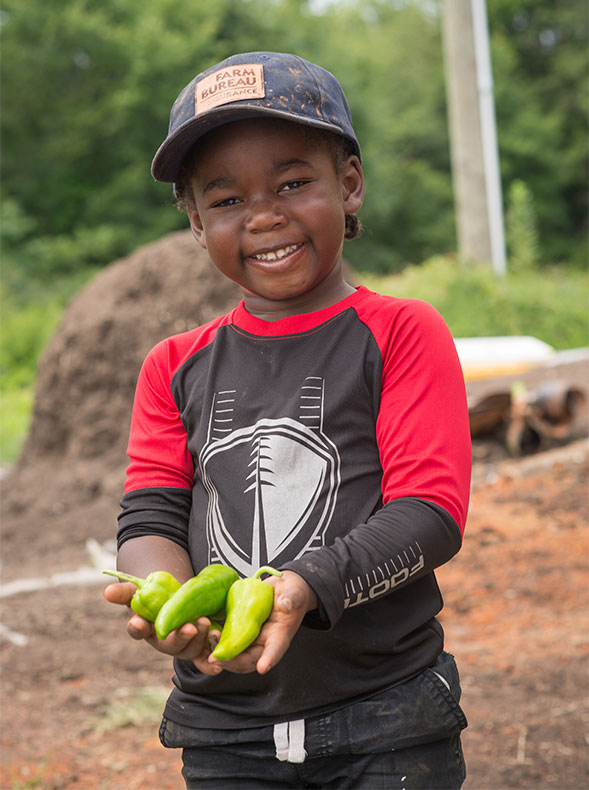 Deeper meaning
Deeper meaning
Students of the Agricultural Academy proudly refer to themselves as “Sankofites.” The farm’s name (pronounced SAHN-koh-fah) comes from a West African term meaning “to go back and get it,” symbolizing a quest for knowledge and represented by a mythical bird carrying an egg.
Akemm Bell shows off Sankofa Farms peppers.
About the Author
Pamela A. Keene is a freelance journalist who writes for magazines and newspapers across the Southeast and nationally.-
Helping hand to farms
-
Share this story:

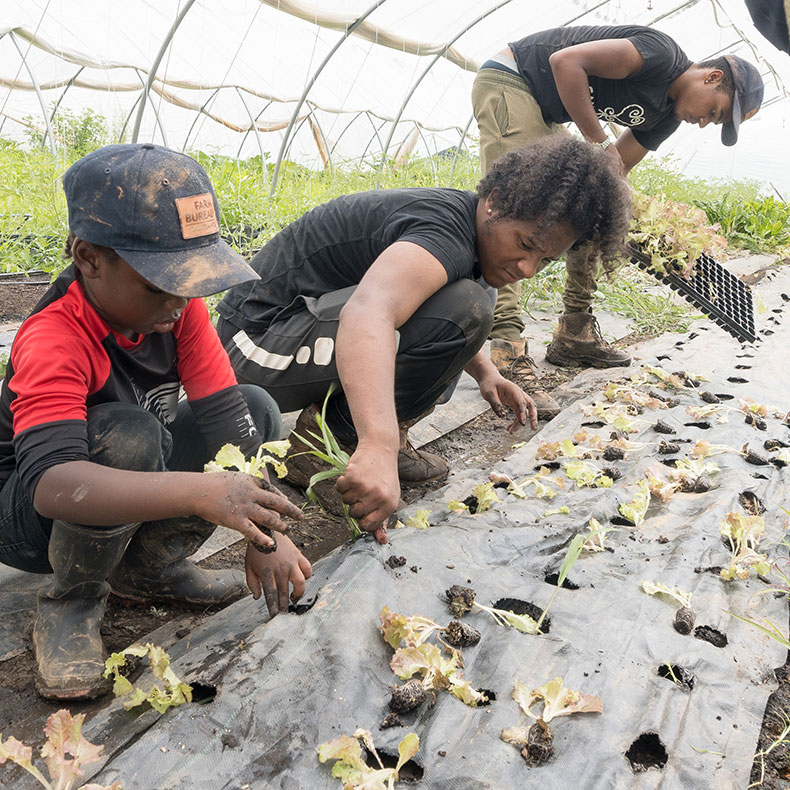
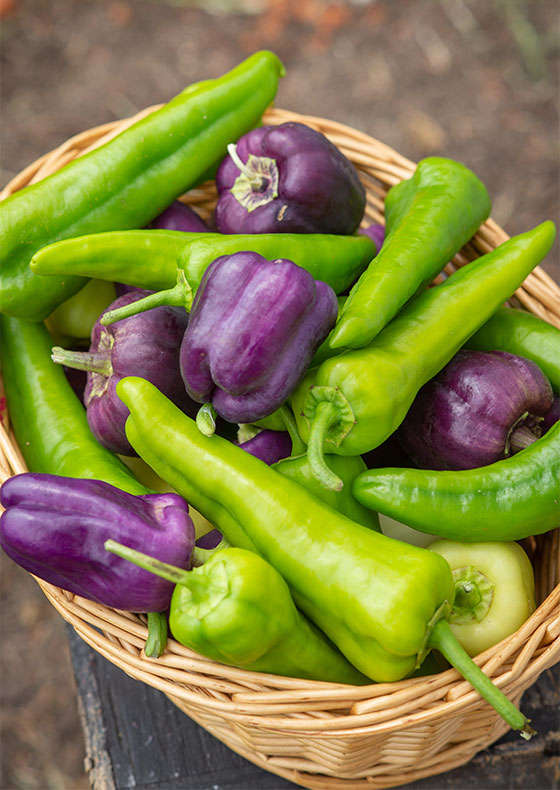
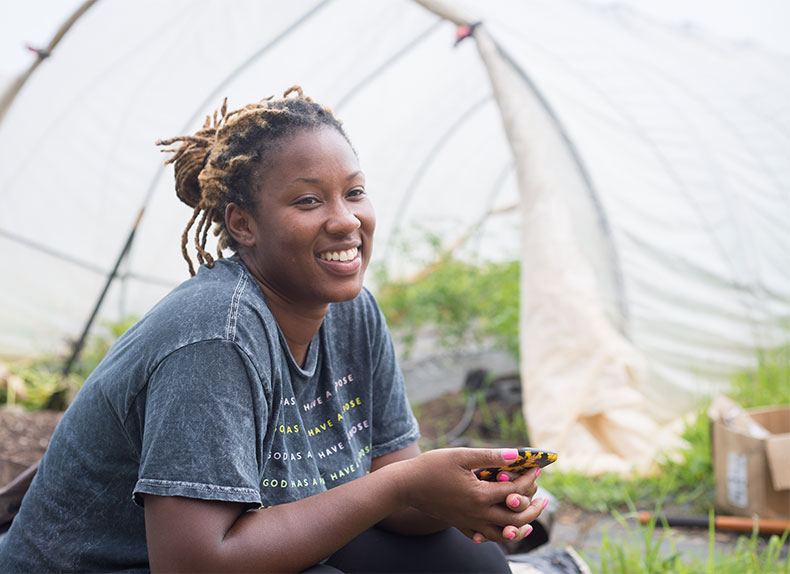
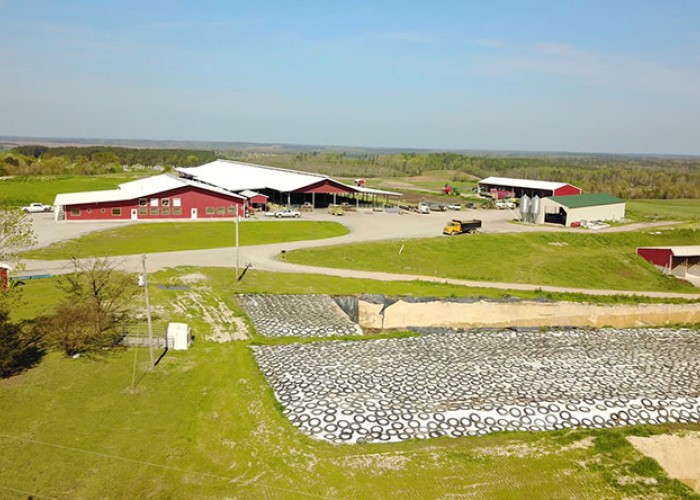
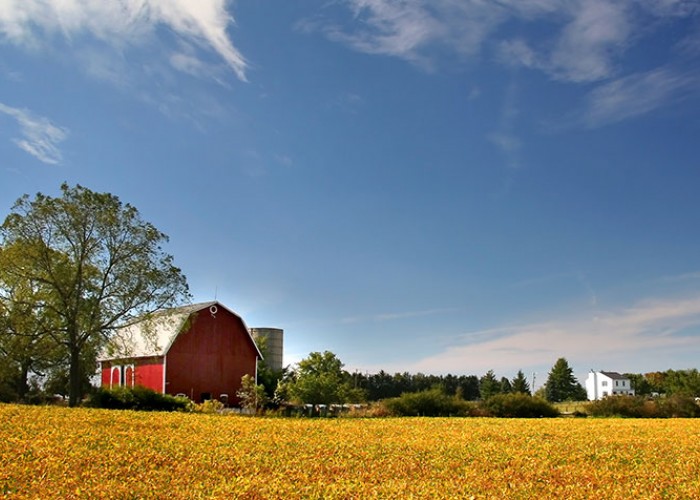



Comments (1)
Ruth-Anne Beaver |
August 26, 2021 |
reply